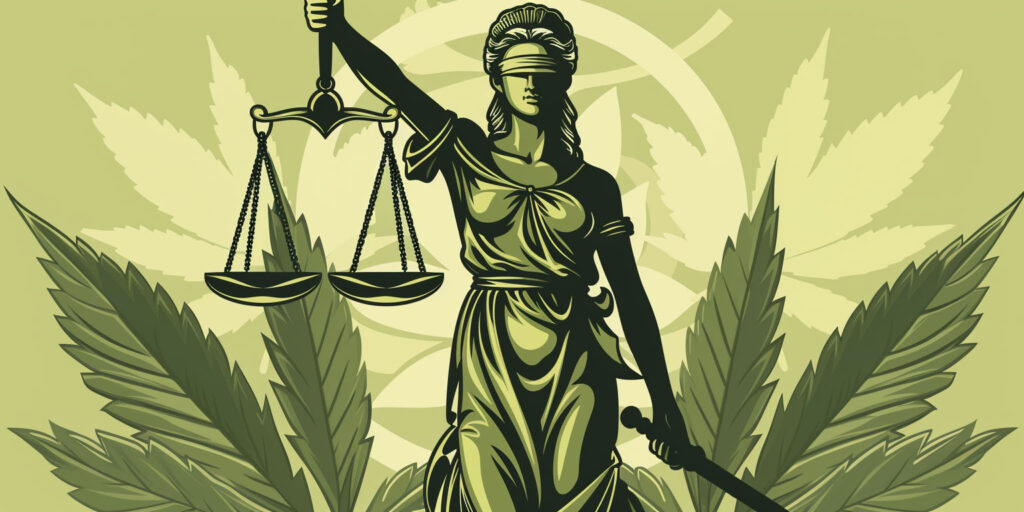In the days of the Armada, a fleet of warships, the scuttlebutt was the rumor or gossip that would spread throughout the ship. Today, Armada Law Corp presents The Scuttlebutt, a daily summery of news articles that people within the cannabis, hemp and plant medicine industries are chatting about along with links to the full articles.
In today’s news:
California Governor Vetoes Cannabis Advertising, Marketing Bill
The legislation, Assembly Bill 1207, would have crippled much of the state’s licensed cannabis industry through restrictive branding, packaging and labeling.
California bans marijuana pre-employment screening
#california – “California employers are no longer allowed to inquire about a job applicant’s past marijuana use under a bill signed into law on Saturday.
Gov. Gavin Newsom signed Senate Bill 700, which protects workers by banning employers from conducting pre-employment drug screenings for cannabis.
The new law, which takes effect Jan. 1, 2024, also generally bars employers from penalizing individuals because of off-the-clock marijuana use.
The measure does not protect information regarding a person’s past marijuana use if the information specifically pertains to a job applicant’s criminal history in cases where employers are permitted to consider that information under certain state and federal laws….”
LSD the cure for OCD? Study reveals potential benefits of using psychedelics
#psychedelics – “Current OCD treatments mostly consist of cognitive-behavioral therapies (CBT) that encourage patients to change their thought patterns, in conjunction with prescribed antidepressants. Unfortunately, benefits are slow to appear from these treatments. In many cases, they never appear at all. Around 30 to 40 percent of OCD patients don’t respond to CBT at all.
“In this context, an option proposed in clinical research in the 1970s is now resurfacing: psychedelics, a family of psychotropic drugs,” says Anne Buot, a post-doctoral fellow in cognitive neuroscience, in a media release. “But since these substances are banned in many countries, clinical studies are difficult to set up, and we don’t have robust data on their effectiveness yet.”…
Psychedelic drugs, when taken, induce an altered state of consciousness, allowing the user to see, perceive, and understand their world in a radically different way for at least a few hours. While psychedelic experiences are often overwhelming and sometimes upsetting, they can also foster the emergence of new, healthier thought patterns long after the trip is over.
Earlier research has shown the acute effects of psychedelics, present from the very first dose, contrast starkly with the delayed effects seen in continuous treatments like antidepressants.”
Read More: https://studyfinds.org/lsd-ocd-psychedelics/
Arkansas Takes Fight Over New Hemp Law To 8th Circ.
#hemplawsuit – “Arkansas officials said they would appeal a federal court order that blocks enforcement of a new state law governing hemp-derived products, and the federal judge who granted the injunction said Tuesday that the order would stand while the appeal played out.
The officials filed their notice of appeal Friday, roughly one month after U.S. District Judge Billy Roy Wilson granted an injunction sought by hemp companies which barred officials from enforcing the new law designed to target hemp-derived intoxicants,
The court wrote that the hemp companies that brought the action were likely to succeed on the merits of their claim that the challenged Arkansas law, Act 629, was preempted by the landmark 2018 federal farm bill that legalized hemp nationwide.
“Clearly, under the 2018 Farm Bill, Arkansas can regulate hemp production and even ban it outright if it is so inclined,” Judge Wilson wrote. “The legislature seems to have tried to keep the parts of the program it likes (purely industrial uses) and eliminate the parts it doesn’t (human consumption).””
Focus on Growth: How tax & accounting firms can best serve the cannabis industry
#cannabisindustry – “As with any emerging industry or new market, many opportunities abound; however, in the cannabis industry, there are gray areas that will requires not just knowing taxes but also understanding the complexities related to this market.
For example, cannabis is taxed differently at the federal and individual state level. And although many states have legalized it, cannabis/marijuana is regarded as a Schedule 1 substance under the federal Controlled Substance Act, accord to the U.S. Drug Enforcement Administration (DEA). This misalignment does create some challenges in regard to taxes, but the Internal Revenue Service (IRS) still requires the payments of taxes by cannabis-related businesses.
Further, the many tax deductions and allowances that are offered to regulator businesses are not afforded to cannabis-related businesses, and they are therefore subjected to higher tax rates. Adding to these many complexities, because cannabis is still considered illegal under federal law in the U.S., many traditional banking services are unavailable to cannabis businesses, which can complicate the process of paying taxes and create additional compliance challenges.”
Read More: https://www.thomsonreuters.com/en-us/posts/tax-and-accounting/cannabis-industry/
Georgia to Become First State in the Nation to Allow Medical Marijuana in Pharmacies
#medicalcannabis – “The Georgia Board of Pharmacy has begun accepting applications from independent, licensed pharmacies for authorization to dispense authorized medical marijuana products, and nearly 120 pharmacies reportedly have agreed to provide medication from Botanical Sciences, one of the state’s two licensed production companies, according to a company statement.
Under the new regulatory regime, Georgia will become the first state in the nation to offer medical marijuana products at independent pharmacies. More than 400 such pharmacies are in the state.
Although Georgia law forbids the growing, sale, or possession of marijuana in plant or leaf form, it authorizes the production, sale, or ingestion of food products infused with so-called low THC oil, or the inhalation of low THC oil through smoking, electronic vaping, or vapor, and permits persons with an active low-THC oil registry card to possess up to 20 fluid ounces of low THC oil for medicinal purposes…”

